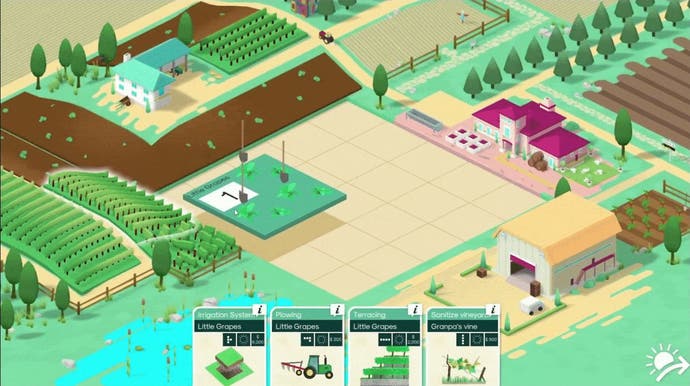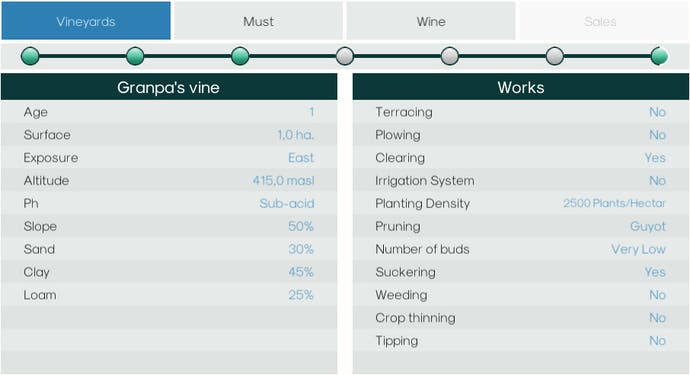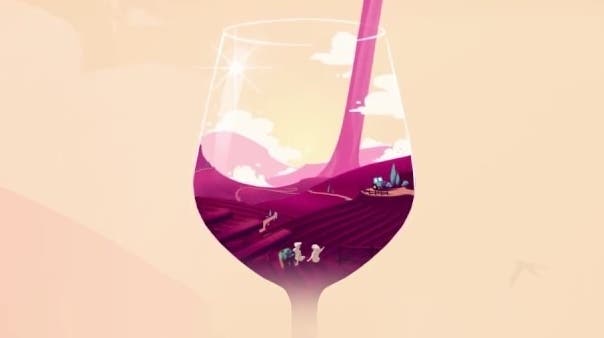Hundred Days makes the complex process of winemaking palatable
Grape expectations.
There's always someone at the party who thinks they're a wine expert, and whether they like it or not, they always come across as a bit obnoxious. Perhaps because winetasting has always been the preserve of the elite, it's difficult to ask said person questions about wine without feeling a little stupid or uncultured. And, even if you are one of the people lucky enough to have visited a vineyard (as I have - bougie, I know), you may not know much about the actual process of making wine.
Enter Hundred Days: a winemaking simulator that's here to help you learn what on earth malolactic fermentation is. It's a beautiful and charming game made by Broken Arms Games, and I managed to get my hands on their first public demo at this year's EGX.
As you can probably imagine, this dev team sure knows their wine, and have been visiting vineyards for "research" purposes. You can also tell from the depth of the systems in this game, which are designed to allow some serious micro-management at practically every stage of the winemaking process. Vine treatments? Check. Yeast selection? Check. Deciding whether you're selling top-tier vintage or goon? Also check.
Before we get into all of that, though, the player is first presented with something far easier to digest: a central grid where you can place specific actions for each day. Designed as a time management tool, the way the pieces fit together means it's not possible to do everything at once - so you'll have to pick and choose. It's a simple but effective way to introduce players to the systems - and the little animations also look adorable.

Then you get to the technical stuff - after each action is complete, you're presented with a mini-menu of decisions for that stage of the process, each of which affects the taste of the wine. After selecting the soil, weeding the vineyard, harvesting, pressing, fermenting and bottling, you'll finally reach the marketing menu. Here, you can choose what your bottle looks like, how much you sell, and what sort of ridiculous name you'll give it.

The goal is to make money and expand your vineyard, and for the early game, the way to start doing that is by making something typical of the region where you're based - whether that be Italy, France or the US. According to the dev, this "typicality" feature is still being developed, but in the late game when you have a famous vineyard, you'll be able to break free of this to create some truly wacky flavour combinations. When the final game is released, it should also come with a little description of what each wine should taste like - but it's up to you if you want to listen.
Once you've started to master the winemaking systems, however, you can't just rest on your laurels. The dynamic systems in play - such as the changing weather, seasons and health of your vines - means you'll have to continually manage the vineyard if you want to reproduce your successful years.
While it's hard to get a full sense of how an in-depth simulation game works from a quick playthrough, I can already tell a lot of love has gone into Hundred Days - while the philosophy behind it, to make winemaking knowledge more accessible, is an admirable aim. And, after a very busy week, I just want to sip some wine while playing Hundred Days in my pyjamas.


